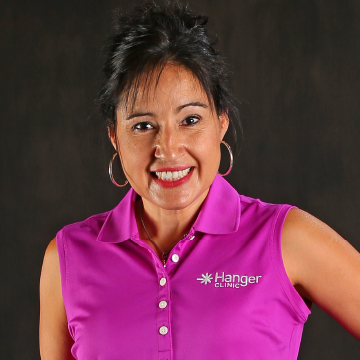Journey to Policy: Unpacking Wins in Successful O&P Advocacy

Date and Time
Location
Virtual Event
Cost: Free
CE Contact Hours: 60 minutes
CE Credit is pending for the American Board of Certification in Orthotics, Prosthetics & Pedorthics; Commission for Case Manager Certification; American Occupational Therapy Association; and various Physical Therapy State Boards.
About This Course
Medicare recently released its revised coverage criteria for microprocessor knees (MPKs) and added clarifying language to its definitions of K-levels through a revised Prosthetic Local Coverage Determination (LCD) and Policy Article.
These changes represent a positive advancement for patients resulting from a collaborative, industry-wide effort focused on collected outcomes and published clinical studies. In this session, researchers, advocacy leaders, and patients will provide insights on effective advocacy strategies, the importance of building a robust body of evidence, and the value of a patient-centered collaborative approach to ensuring proposed policies are enacted. Join us as we discuss the evolving landscape of advocacy and how we can work together to drive meaningful legislative and regulatory outcomes for patients with limb loss everywhere.
Objectives
Upon completion of this program, participants should be able to:
- Explore the critical role that a strategic advocacy approach plays in achieving policy changes within the healthcare system, particularly for orthotic and prosthetic (O&P) patients.
- Explain the importance of building a strong body of evidence and how that contributes to policy reform and success, as well as where to go to find supportive evidence for a given policy change.
- Assess how advancements in technology, such as microprocessor-controlled knees, influence patient care and the necessity for patient-centered approaches in advocacy efforts to effectively shape legislative and regulatory outcomes.
- Describe current evidence that is helping to shape care for relevant patient populations.
Session Outline + Timed Agenda
- Introduction: 5 min
- Panel Discussion: 40 min
- Global Advocacy Efforts and a Collaborative Approach
- Body of Evidence
- Patient Impact and Outcomes
- Questions & Answers: 15 min
Speakers

Shane Wurdeman, PhD, CP, FAAOP(D)
Vice President, Scientific Affairs, Hanger
Dr. Shane Wurdeman is the Vice President of Scientific Affairs at Hanger. He entered the field of O&P as a technician before transitioning to working as an orthotist/prosthetist, and finally into his role as a principal investigator.

Maggie Baumer, JD
Leader of Enterprise Patient Advocacy, Hanger
Maggie is an attorney licensed to practice in both New York and Massachusetts. She currently serves in the national role of Leader of Enterprise Patient Advocacy for Hanger, working collaboratively with partners both internally and externally to effect positive policy changes for the O&P community.

Brain Hafner, PhD
Director of Research, Division of Prosthetics & Orthotics, University of Washington, Department of Rehabilitation Medicine
Brian Hafner is a bioengineer and professor in the University of Washington (UW) Department of Rehabilitation Medicine, adjunct professor in the Department of Mechanical Engineering, and a principal investigator at the University of Washington Center on Outcomes Research in Rehabilitation (UWCORR).

Yvonne Llanes
Patient Champion, Team Hanger Clinic
In the blink of an eye, Yvonne Llanes’ life changed forever when she lost both legs in a tragic accident. For 10 years after her accident, Yvonne learned to cope with her physical and emotional trauma by finding comfort in the one thing she could trust to keep her safe—her wheelchair. After making a promise to her dad that she would use prosthetic legs and leave her wheelchair behind for good, Yvonne with the help of Hanger Clinic was fitted for prosthetics and never looked back.